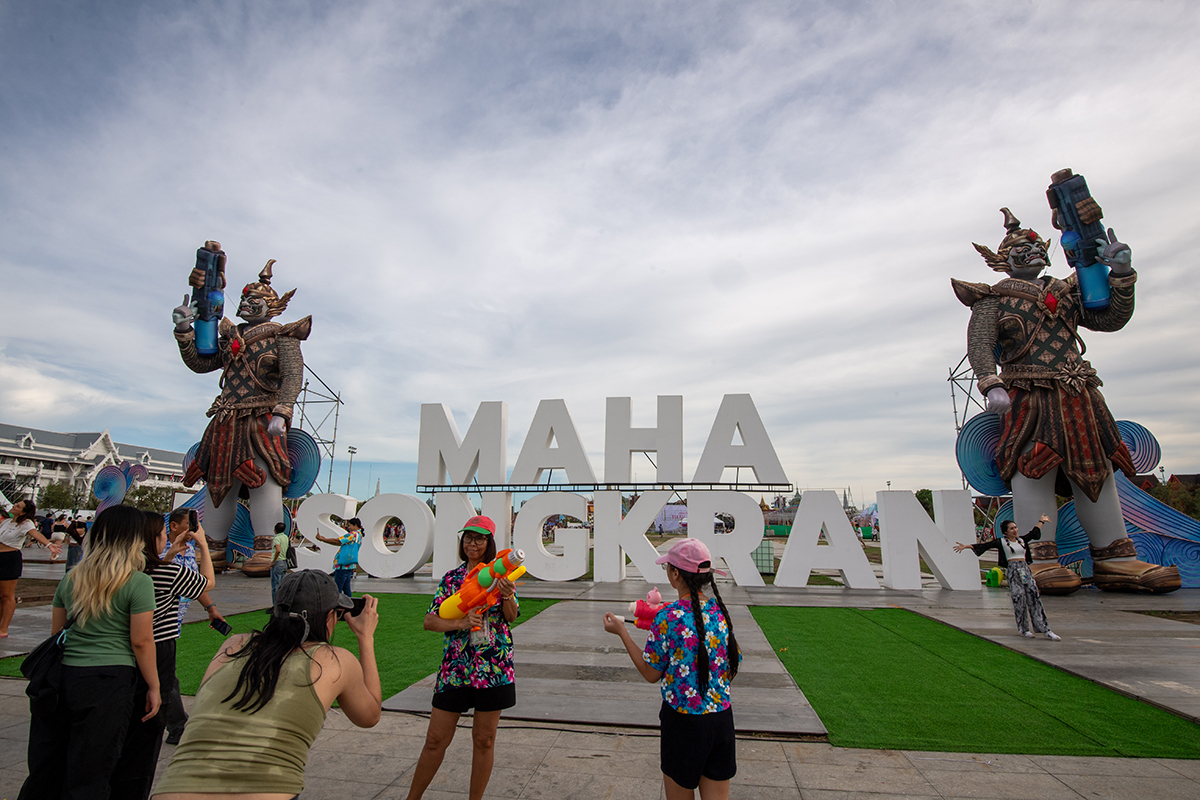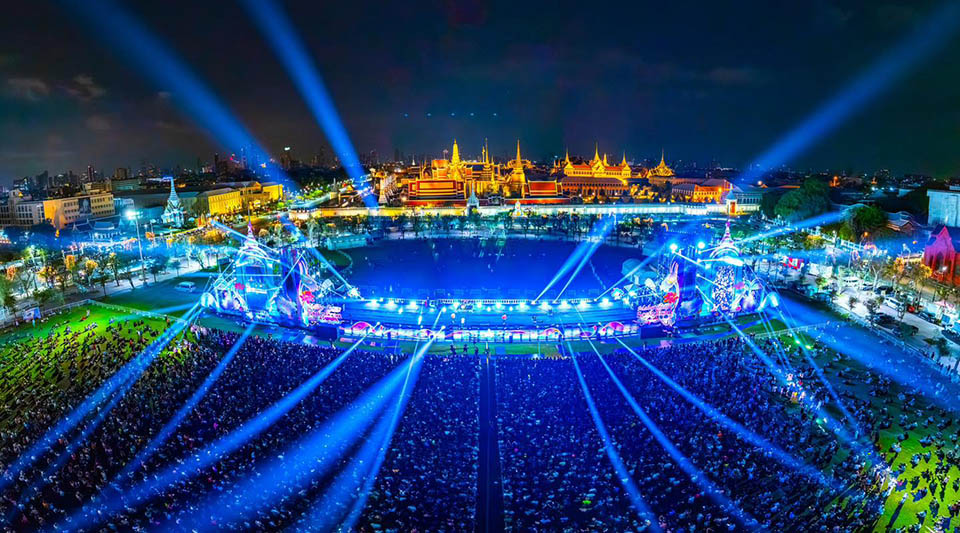Every April, Thailand erupts into a dazzling water, colour, and community celebration. Suppose you've ever seen joyful crowds wielding water guns in the sweltering heat of Southeast Asia.
In that case, chances are you've witnessed Songkran – Thailand's traditional New Year festival. But behind the exhilarating water fights lies a festival steeped in history, spiritual significance, and heartfelt tradition.
What is Songkran?
Celebrated annually from 13 to 15 April, Songkran marks the traditional Thai New Year. It coincides with the sun's entry into Aries, a celestial event inherited from Hindu astrology. "Songkran" comes from the Sanskrit saṃkrānti, meaning "astrological passage". While it's most famous for its nationwide water fights, Songkran is a profound cultural cornerstone that unites family, faith, and fun.
Songkran is so important to Thai heritage that in 2023, UNESCO officially recognised it as an Intangible Cultural Heritage of Humanity, becoming a proud moment for the Thai people and a signal to the world of the festival's deep cultural roots.
A Journey Through Time
The Origins of Songkran stretch back to ancient India, where spring festivals celebrated the harvest and the cyclical renewal of life. These traditions travelled to Southeast Asia and were adopted by the Khmer Empire before evolving into the uniquely Thai version we know today. The festival's early form was a gentle, reflective occasion. People poured fragrant water over Buddha images and the hands of elders, symbolising purification and blessings for the New Year.
According to Thai mythology, Songkran's origins are linked to a clever boy named Dhammapala, who won a wager of riddles against the deity Brahma. As a result, Brahma's head had to be preserved with great care to prevent disaster, and his seven daughters now take turns carrying it around Mount Meru each year. This celestial parade is honoured during Songkran, weaving the festival into Thai cosmology and folklore.
Although Thailand officially shifted to the Gregorian calendar in the 20th century, making 1 January the start of the year, the Thai people never let go of their traditional New Year. Songkran remained a cherished celebration. So much so that it's still a public holiday today, bringing the entire country to a festive halt.
Traditions That Touch the Soul
The Songkran festival spans three spiritually and socially significant days:
- 13 April—Maha Songkran: The first day marks the transition into the New Year. People clean their homes, visit temples, and perform Song Nam Phra, where they gently pour scented water over Buddha images to wash away the past year's misfortunes. This day is also National Elderly Day in Thailand, with young people showing gratitude and respect through rituals like Rot Nam Dam Hua, pouring water over their elders’ hands to seek blessings.
- 14 April—Wan Nao: Often the most energetic day, water battles reach their peak. It's also a time of preparation. Families cook meals for monks, build sand stupas (Chedi Sai) at temples, and release birds or fish to earn merit. These acts of devotion balance playfulness with purpose.
- 15 April – Wan Thaloeng Sok: The official Year's Day. Thais give alms to monks, pray, and participate in rituals for prosperity. It's a fresh spiritual start embraced by the entire nation.

From jasmine garlands gifted to elders to colourful floral shirts worn in celebration, every detail of Songkran is infused with meaning.
More Than a Water Fight: Why Songkran Matters
Songkran is more than just a chance for the Thai people to cool off—it’s about starting anew. Water, the festival’s most iconic element, symbolises purification. Whether sprinkled gently on a Buddha statue or hurled joyfully in the streets, the message is the same: wash away the old and welcome the new.
It’s also a time for reconnection. Many Thais return home to reunite with family, pay respects to ancestors, and strengthen community bonds. At its heart, Songkran celebrates togetherness. It is a festival that bridges generations and weaves spirituality into everyday life.
Educational efforts across Thailand, including school events and media campaigns, ensure younger generations understand the significance of Songkran’s customs, not just the thrill of the water play.
Songkran 2025 in Numbers
In 2025, Songkran once again proved its magnetic charm to the world. Thailand welcomed around 476,000 foreign tourists during the holiday period (12–16 April), contributing approximately 7.3 billion baht to the economy, which is part of an overall 26.5 billion baht in tourism revenue during just five days. This significant boost in the economy underscores the festival's impact and significance.
While traditional visitors from China and Hong Kong saw a dip due to safety concerns, arrivals from India and Europe soared. Thailand's airports reported a 14.1% increase in international passengers during the week, reflecting Songkran’s irresistible pull for travellers seeking culture with a splash of fun.
Bangkok’s “Maha Songkran World Water Festival 2025” featured everything from parades and drone light shows to concerts and temple fairs, turning the capital into a spectacle of sight and sound.

Where to Celebrate: Songkran Hotspots Across Thailand
- Bangkok: Head to Khao San or Silom Road for epic water fights. Temples like Wat Pho offer a more spiritual experience for those seeking quiet reflection.
- Chiang Mai: Possibly the most iconic Songkran destination. Celebrations here often last a week and blend traditional processions, temple visits, and intense water battles around the Old City moat.
- Phuket & Pattaya: Known for beach vibes and buzzing nightlife. Expect foam parties, street parades, and a festive atmosphere from dusk till dawn.
- Ayutthaya & Samut Prakan: These regions offer more traditional or culturally distinctive experiences, including ancient processions and local Mon community rituals.
Wherever you choose, you're bound to be soaked and smiling. Remember to stay safe during the water fights by avoiding rough play and respecting others' boundaries.
The Heart of Songkran
Songkran isn't just a party. It's a vibrant celebration of life, a spiritual cleanse, a family reunion, and a cultural treasure all rolled into one. Whether visiting for the first time or returning year after year, the festival offers an unforgettable window into the Thai soul – joyful, respectful, and deeply connected to the rhythms of nature and time.
If you're ever in Thailand in April, grab your water gun, don your floral shirt, and join the flow. Because Songkran is more than a festival but a feeling.


















